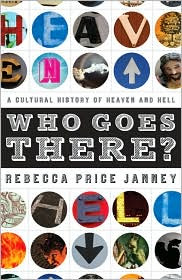However, as of late there has been an interesting point being pointed out by many in the church. The latest is found on Tony Jones' blog entitled: Doug Kmiec Is Right: Clergy Should Not Perform (Legal) Marriages.
In this Tony points out some interesting and thought-provoking observations about clergy and marriage. He says:
In no other fuction as a clergyperson did I function as an extension of the government -- not when I was baptizing, burying, counseling, or communing. Only when performing a wedding did I, with the stroke of a pen, make official a legally binding contract that, in the eyes of the state, allowed that couple to enjoy certain privileges like the ability to file joint tax returns, visit one another in the hospital, and receive joint health care benefits from one of the partner's employers.....
I do find it odious that clergypersons are called upon, in this one instance, to act as agents of the state.
Clergy and churches, on the other hand, should have no part in legally-binding contracts. Instead, religious professionals should bless and sanctify unions and partnerships that fit within their religious traditions as part of their sacerdotal functions.
Of course part of this is brought on by the issue of same sex marriage. Douglas Kmiec on The Colbert Report (Video Below), points out that "the state has an obligation to treat all of its citizens equally and to preserve the principle of equality." In essence, he is saying that by allowing the polemic Church to decide who can and can't be married that the State is not upholding its role of equality for all citizens. This is something of which I had not considered, but has been thought-provoking to me.
By watching the video and reading all of Tony's blog, you will see that what they are suggesting is a separation of the two roles. This allows the state to practice equality, while allowing the Church to decide according to their own convictions and traditions. That would mean that different traditions would bless and marry same sex couples, and others would not. If a couple would not be recognized/blessed by their own church/tradition, then they could seek out another tradition. Either way, they would still have equal rights as heterosexual unions, because according to the State, all couples would have to go through the state for the legal union of marriage.
| The Colbert Report | Mon - Thurs 11:30pm / 10:30c | |||
| Douglas Kmiec | ||||
| ||||
I'm not sure this solves the problem, but it is an interesting concept. Let's face it, when it comes to marriage there is no separation of Ch. and St. When that occurs, others suffer. In this case, some churches suffer and many individuals and couples suffer. I agree that the Church and her clergy should not be agents of the State, but marriage has also become a tradition of sacrament.
I'm not sure what the right call is here, but it is a new (at least to me) thought that is interesting and will be given more thought! I do believe in equality, but in that equality it also means not forcing churches into performing marriages with which their beliefs do not mesh. How do we provide equality for all parties involved? I do not believe that there is true equality if one party is hurt by the "rights" of the other. I think on this issue it goes both ways.
In the meantime, I will continue to do weddings when asked because I truly do enjoy the unique perspective on that holy moment. I adore watching as everything that the couple feels for one another culminates into that one moment where they are pronounced married for the first time! I will continue to do it because I love the role that God plays in the blessing of those that want to seek the marriage commitment. But I will also continue to speak out for equality for all, even those that I don't agree with. Those that want to call me names and label me because I disagree with their theology, I will still fight for you. Why? 2 reasons: Because liberty for one means liberty for all. And 2, because I am called to love all and not be judgmental. And I will never forget that behind these "issues" are real human faces. People with feelings of love, pain, sorrow, etc... the same feelings that I feel. We must never remove the human element when discussing these issues or we chance perhaps losing our own humanity in the process.
These are some interesting thoughts, feel free to share yours.
 reading. Some examples:
reading. Some examples:
